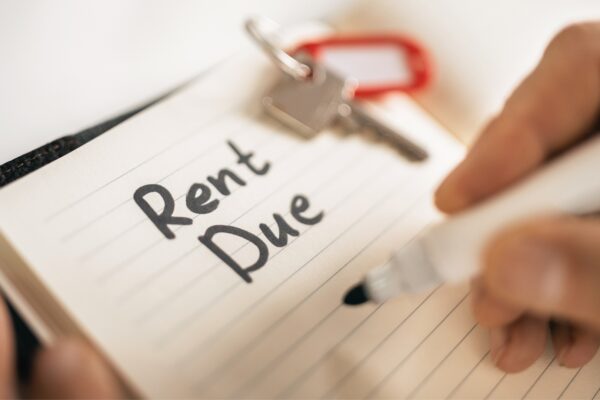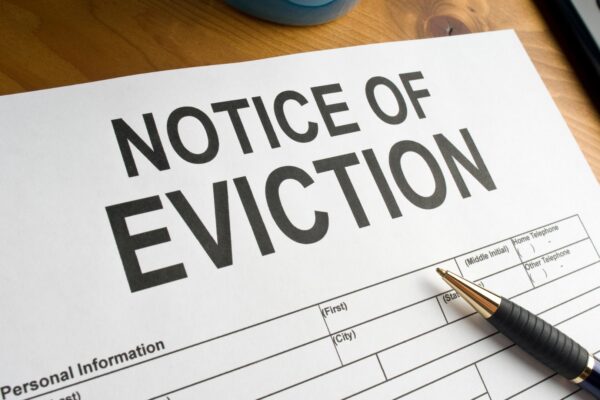The Renters (Reform) Bill was first introduced in parliament in May 2023, proposing significant reforms for the private rented sector. However, didn’t make it through the legislative process in time, meaning it will not become law.
This was due to Rishi Sunak’s surprise call for a general election on 22nd May, which left no time for the bill to be passed before parliament was dissolved shortly after.
However, the Labour Party has now introduced a new bill called the Renters’ Rights Bill. It aims to address similar issues, including abolishing Section 21, which allows landlords to evict tenants without needing to provide a reason.
Serve a Section 21 notice in just a few steps using our notice-serving tool. Find Out More
Renters (Reform) Bill timeline
Before the Renters (Reform) Bill was eventually scrapped, it went through several stages in the legislative process.
17 May 2023 – First Reading: The Bill was introduced in the House of Commons. During this stage, the bill’s title and main objectives were presented, but there was no debate.
23 October 2023 – Second Reading: MPs debated the general principles and objectives of Bill in the House of Commons. A motion was held at the end of the debate to determine whether the bill should proceed to the next stage.
28 November 2023 – Committee Stage: The Committee Stage kicked off on 14th November featuring verbal testimonies from key figures in the private rented sector, including the National Residential Landlords Association (NRLA), housing charity Shelter, and legal experts, among others.
Following this, the Committee initiated a thorough review of both the original text and proposed amendments brought forth by the government and opposition parties. This stage concluded on 28th November, with the revised Bill formally introduced to the House of Commons.
24 April 2024 – Report Stage and Third Reading: During the Report Stage, MPs approved a substantial number of amendments and new clauses to the Bill. Following this, the Third Reading debate quickly followed and successfully passed through the House of Commons.
1 May 2024 – House of Lords: As the Bill passed all stages in the House of Commons, it was then sent to the House of Lords for consideration. The bill was set to go through similar stages in the House of Lords: first reading, second reading, committee stage, report stage, and third reading.
22 May 2024 – General Election Announcement: Rishi Sunak, who was PM at the time, called a snap General Election to take place on 4th July 2024. The Bill didn’t make it into the parliament’s ‘wash-up’ period and was consequently scrapped.
You might also be interested in…
- Renting to Students: Guarantors, Advance Payments, HMO licence and more
- Holding Deposit, Tenancy Deposit, Rental Fees: Everything You Need to Know
- How to Serve a Section 21 Notice to Tenants
- What is an HMO? How Do I Convert My Property?
- How to Serve a Section 8 Notice
What was the aim of the Renters (Reform) Bill?
As often claimed by the government, the bill sought to improve conditions for renters by introducing changes like eliminating Section 21 ‘no fault’ evictions and ending fixed-term tenancies.
You can find more details about each proposal below. However, it’s important to remember that the bill has been scrapped and will not become law.
Section 21 ‘no fault’ evictions to be abolished
One of the bill’s main promises had been to scrap Section 21, a process that allows private landlords to repossess their properties by serving tenants with a Section 21 notice.
Often called a ‘no fault’ eviction notice, it doesn’t require landlords to provide a reason for ending the rental agreement.
Under the proposed changes, landlords would have only been able to end rental agreements using the updated Section 8 grounds.
The bill aimed to amend and expand the current set of reasons outlined in Section 8 of the Housing Act 1988, which are divided into mandatory and discretionary grounds for possession.
There were also several proposed new Section 8 grounds, such as allowing landlords to end the tenancy if they planned to sell the property.
The end of fixed-term tenancies
The Renters (Reform) Bill had proposed simplifying the process of setting up tenancies by replacing Assured Shorthold Tenancies (ASTs) with a single system of periodic tenancies.
Currently, ASTs are the most common type of rental agreement in the private rented sector. Tenants usually sign up for a contract of six or 12 months and once this time is up, a choice is made to either renew or continue on with a periodic tenancy where payments are made periodically, usually on a monthly basis.
The bill had suggested that all rental properties transition to a rolling monthly tenancy without a fixed end date.
Under this proposed system, tenants would have been required to provide two months’ notice before moving out, giving landlords time to find new tenants and avoid prolonged periods of vacancy.
Make sure your property is protected with landlord building and contents insurance. Get Instant Quotes
A simpler approach to rent increases
If the bill had passed, rent review clauses would have been coming to an end in an effort to prevent tenants from being subjected to automatic rent increases, among other issues.
However, landlords would still have had the opportunity to nudge up the rent annually in line with market rates, just like the current Section 13 rules allow.
To notify tenants of an upcoming rent increase, landlords would have needed to complete a new form available through the government’s official website and then serve it to their tenants.
If tenants agreed to the increase, they would have simply started paying the higher rent. If they found the increase unfair, they could have contested it through a First-tier Tribunal.
More rights when it comes to pets
If the bill had passed, tenants would have likely been granted more rights to keep pets, making it more difficult for landlords to refuse without a valid reason.
When a tenant requested to keep a pet in the property, landlords would have needed to respond within six weeks of the request.
However, landlords would have been able to ask for additional information, and once provided, would have received an extra seven days to make a decision.
If landlords declined the pet request and tenants considered the decision unfair, tenants would have had the option to escalate the matter to the Private Rented Sector Ombudsman or even pursue legal action.
Since using the Ombudsman would have been free for tenants, it would likely have become the preferred route for resolving pet-related disputes.
A new property Ombudsman
It’s possible that every landlord would have been required to join a government-approved Ombudsman scheme, regardless of whether they used a letting agent.
This scheme would have provided a way for former or current tenants to file complaints against landlords, which would then be investigated independently.
The Ombudsman would have the authority to resolve issues for tenants, potentially requiring landlords to apologise, provide information, take corrective actions, or even pay compensation of up to £25,000.
Landlords would have been obligated to adhere to the Ombudsman’s decision if the tenant accepted the final ruling.
Failure to comply with the decision could have resulted in landlords facing a banning order, particularly if they were repeat or serious offenders.
List your property and discover great tenants in the blink of an eye. Get Started
A property portal for landlords and tenants
If the Renters (Reform) Bill had become law, it would have introduced a new digital property portal designed to serve as a resource for landlords, helping them better understand their legal obligations.
This portal would have addressed issues such as tenants discovering too late that they were in substandard properties rented from landlords who were deliberately ignoring the rules.
Additionally, it had promised to make it easier for local councils to identify responsible parties when serious issues arose.
On the flip side, the platform would have allowed responsible landlords to demonstrate their adherence to regulations, enhancing their appeal to potential tenants.




Looks like using the Ombudsman would be free for tenants. What will be the cost for landlords?
What will prevent SHORT TERM holiday makers to the UK (or their families in the UK) renting a property and then giving 2 months notice to quit immediately after moving in?
Nothing. A point I made when the bill was announced. No short stay renter or extended holiday maker need ever pay higher prices again.
“Calling all retirees. Why settle for a fortnight in Scarborough at that holiday cottage when for the same price you can rent the place next door for the whole Summer”
It feels like a road crash coming.
Landlords will be bailing out of the market either by converting to holiday lets because it is now the less hassell route or selling up and investing elsewhere. Most of the private landlords just want a quiet life. The number of properties coming on the market, as a result, will be a small increase to the total available, making little impact on the housing crisis. Those who think otherwise are deluded.
19% of properties are Private rentals, if that is reduced by half, the overall impact on availability to buy will only be 10%
However, the properties available for long-term rent will dramatically decrease by 50%, and there will be mass homelessness and/or sink landlords/councils mopping up, forcing the unfortunate into dangerous blocks and poverty areas of concentrated accommodation in prison-like environments.
There will be demonstrations, revolts and mass dissatisfaction and the people blamed wont be the ones who caused it, rather it will be the poor sods left still trying to do the right thing - only using more people out of the landlord arena.
God help us all. This is going to be an earthquake. Be careful about what you wish for.
Lessons could be learned from Berlin. Berlin's failed rental revolution - Exberliner
You don’t seem optimistic about this.
There are 4mn rental voters and a lot less landlord voters so guess what they’ll do.
It will happen for the simple reason that the government can’t afford the cost of the Homelessness Reduction Act and the pressures it puts on councils. Talk today about Hastings Council going under due to the cost of temporary housing. With rising rents, you get a churn where those who have issues with affordability / credit worthiness get dumped on the council. The cost is too much so someone has to pay and the government has decided its the PRS.
You will just need to hug your T and hope it will all pan out - or make sure you check you have reliable T’s right at the start of the tenancy - and be able to withstand voids if you have to wait for the renter profile you want.